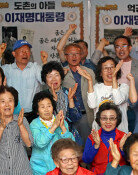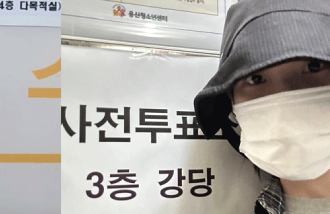Global Trade Barriers to Be Lowered on Commodities
Global Trade Barriers to Be Lowered on Commodities
Posted July. 28, 2008 03:31,
Participating nations of the Doha Development Agenda of the World Trade Organization reached a tentative agreement to include sensitive issues such as agricultural products for certain countries in the negotiation.
With the latest development, the multilateral talks are expected to reap results within this year. The talks were in limbo for seven years since its launch in November 2001.
Once the participants reach a final deal, the global free trade movement will pick up speed, leaving huge ripple effects on bilateral talks pursued by many countries as alternative to the multilateral one. Thus, Koreas ongoing free trade talks with the European Union will also likely be affected.
The Ministry of Foreign Affairs and Trade confirmed yesterday that major WTO member states reached a tentative agreement on details concerning DDA agricultural products and the non-agricultural market access (NAMA). It said, "The agreement came out on Friday, local time, at the ministerial meetings of the member states in Geneva, Switzerland.
One of the Korean delegates to the talks said, The Doha talks had been deadlocked due to the disputes over some key issues. Now, we have a breakthrough, and will probably have a final agreement on the Doha agenda within this year.
According to the draft agreement, a developing country can designate items as special items, amounting up to 12 percent of the categories on the tariff lines. Once tagged as special, the country can decrease the tariffs on the item much lower than the others for its food security or rural development. In particular, some 5 percent of the special items can be immune from the tariff reduction clause.
Currently, Korea has 1,452 items listed on the lines. Thus, it can designate 174 items as special, 73 of which will be exempt from the tax-lowering mandate.
In addition, a developing country can mark up to 5.3 percent of its products as sensitive, and an advanced country up to 4 percent. A sensitive item is immune from the low tariff clause. Instead, a country just has to increase the low duty tariff-rate quota (TRQ) on it. In Korea`s case, up to 30 items including sesame seeds and soybeans can benefit from it.
The market access to non-agricultural products, an issue that has dominated Koreas attention, will be increased, as wished by Korea. The tariff reduction coefficient is set at 20 to 25 percent, tipping the balance more favorable for Korea in making inroads into developing countries.
Once the tentative agreement is finalized, each country will prepare its implementation plan subject to the agreement, and submit it to all member states for approval.
After the approval procedure, the Doha deal will be completed to operate as standard regulations ruling the world trade in the future. Previously, the global community passed the Uruguay Round in 1994.
havefun@donga.com bae2150@donga.com







